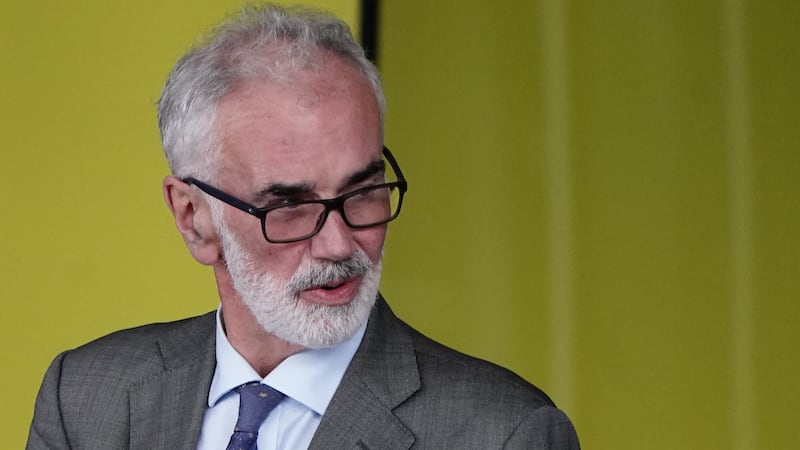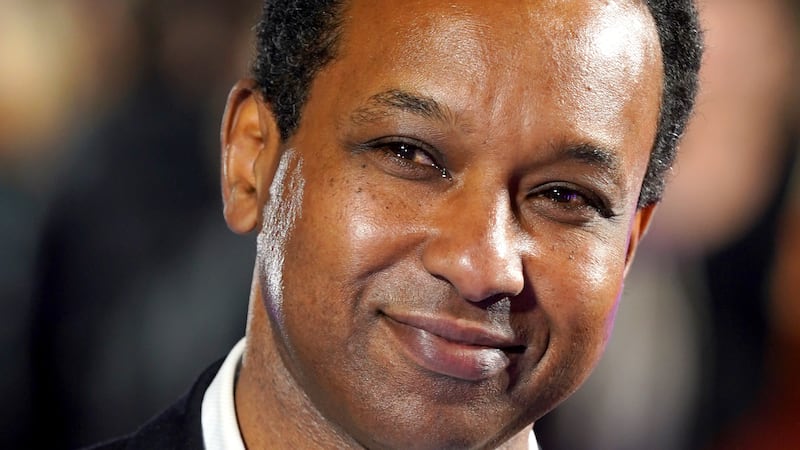A senior Metropolitan Police officer accused of smoking cannabis daily wanted to “compromise the integrity” of former commissioner Dame Cressida Dick by asking if he could offer her his resignation on the spot instead of taking a drugs test, a tribunal has heard.
Commander Julian Bennett, who has served in the force since 1976, is said to have taken the drug before breakfast and work in late 2019.
He is also alleged to have failed to provide a urine sample for testing and lied about why.
When asked to provide a sample, he asked if he could speak to the former commissioner and resign on the spot. This request was refused.
He says he was taking CBD oils to treat facial palsy, which could have caused the test to come up positive for an innocent reason.
At a misconduct hearing in Southwark, south London, he broke down as he told the panel “the Met needs me” and said he would rather be at work than suspended on full pay.
Mark Ley-Morgan KC, representing the Metropolitan Police, suggested if the former commissioner had accepted his resignation, it would have smacked of “organised corruption at the highest level”.
The hearing was told he referred to the former commissioner as Cress.
He is said to have asked Assistant Commissioner Louisa Rolfe “can I ask Cress if I can resign immediately?”.
He told the hearing the former commissioner was someone “I held in high regard” whom he considered to be “a person of the highest integrity”.
He added that he had phoned her after his suspension, when there were tensions between her and mayor of London Sadiq Khan.
Mr Ley-Morgan asked him: “What you were asking is for the test not to happen so no-one would ever know whether you had indeed been taking drugs or not.”
He replied: “It would not have stopped the investigation. It would have been an investigation into me asking to resign rather than take the test.”
He said he offered to resign to avoid embarrassment to the force.
Mr Ley-Morgan asked: “What made you think that the commissioner would have been party to stopping a serious allegation against a senior police officer and sweeping it under the carpet?”
He replied: “It is not about sweeping an allegation under the carpet, of course the commissioner isn’t going to do that. I thought at the time it was the right thing to do.
“This investigation has taken three years and cost £1.5 million, a lot of that has been public money.”
Mr Ley-Morgan asked: “Is that a good reason to sweep something under the carpet?”
He again denied he would have ever swept anything under the carpet.
Mr Ley-Morgan asked: “What do you think the commissioner would say to Pc Jones from Streatham police station being asked to give a sample and offering to resign instead?”
He replied: “I think she would not engage.”
Mr Ley-Morgan asked: “Why would she engage with you?”
He replied: “I am a senior officer. It would have stopped a lot of this. I would not be here.”
Mr Ley-Morgan said: “Absolutely right. It might have gone a different way.
He added: “If the commissioner had allowed you to resign rather than give a sample, do you think she would have been doing the right thing?”
Mr Bennett replied: “Yes I do.”
Mr Ley-Morgan asked: “What do you think a fair-minded member of the public would think if they discovered the Met Police had intelligence that a commander was taking drugs and the commissioner had allowed him to resign?”
He replied: “I would have thought if they had released intelligence and followed it up, and the evidence is very limited in this case, there would not be any evidence of drug taking and they would be quite content with that, rather than having three years of this.”
Mr Ley-Morgan later asked: “You were so desperate to avoid providing a sample that you asked the commissioner to compromise her integrity.”
He replied: “That is absolutely not the case.”
Mr Ley-Morgan asked: “Your sole concern was the reputation of the Metropolitan Police service?
He replied: “I was trying to avoid discredit (to the force). That is actually what happened.”
Mr Ley-Morgan asked: “I suggest that is a bare-faced, cynical lie.”
The officer replied: “I am not lying on this issue or any of the other issues.”
The tribunal heard the officer imagined “negative headlines in the papers” if he tested positive for cannabis.
Mr Ley-Morgan asked: “Which do you think is more damaging for the reputation of the Metropolitan Police? ‘Commissioner of police allows Met commander to resign rather than taking a drugs test?’ or ‘Met commander tests positive for cannabis after taking CBD products bought on the high street’.”
He replied: “They’re both horrendous.”
Mr Ley-Morgan asked: “The first one, does that not smack of organised corruption at the highest level?”
The officer replied: “I think if people understood, they would actually be more supportive.”
He later broke down in response to a question about whether he refused to take the test because he knew he would be paid while misconduct proceedings took place.
He said: “I have got an in-built strong work ethic, I am embarrassed I have spent so much public money on this.
“It is not for my own benefit, I would rather be at work and given the opportunity I would go back.”
He later added: “I wanted to work, I still want to work. I can make a contribution, the Met needs me.”
The tribunal also heard he had stopped taking medication for facial palsy in late 2019 but he said he still needed to take CBD oil after that.
Earlier on Friday, the tribunal heard he could have provided a drugs test when he believed it would not have come up positive because he was taking CBD oil.
The tribunal heard that may not have been true but it is nonetheless what he believed at the time.
He also described Sheila Gomes, his ex-lodger, who made the allegations, as a “lonely and troubled individual” with “a lot of issues”.
Mr Bennett wrote the force’s drugs strategy for 2017-21 as a commander for territorial policing.
The document, called Dealing With The Impact Of Drugs On Communities, set up plans to raise “awareness of the impact of drug misuse”.
Freedom of information requests showed Mr Bennett presided over 74 police misconduct hearings involving 90 officers between June 2010 and February 2012.
Out of the hearings involving Mr Bennett, 56 officers were dismissed – more than three quarters.
He chaired 69 hearings during that time and two officers were dismissed for drugs misuse, the figures showed.
Mr Bennett is accused of breaching the force’s professional standards for discreditable conduct three times, honesty and integrity twice and orders and instructions once.
His actions are alleged to have amounted to gross misconduct.
He denies the allegations and has been suspended on full pay since July 2021.
Claims he took LSD and magic mushrooms were dismissed by the tribunal panel on Wednesday.
The tribunal continues.






